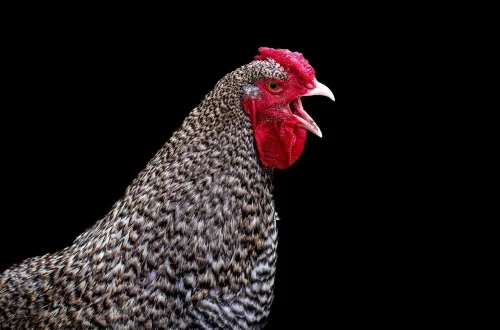
Essential Guide to Horse Dental Floats for Optimal Equine Health
Maintaining optimal health for horses is a multifaceted endeavor that requires attention to various aspects of their well-being. One critical yet often overlooked component is dental care. Horses, being herbivores, depend on their teeth for effective chewing and digestion of forage. As they age, their dental health can deteriorate, leading to a range of issues that can affect their overall health and performance. The importance of regular dental maintenance cannot be emphasized enough, as it plays a vital role in preventing pain, discomfort, and potential complications.
Horse dental floats are specialized tools designed to address dental irregularities and maintain a horse’s dental hygiene. These devices help in the process of floating, which involves filing down sharp points and uneven surfaces on the teeth that can cause discomfort while eating or lead to other serious health issues. While many horse owners may be aware of the basic needs of their animals, understanding the full scope of equine dental care—including the use of dental floats—can significantly enhance a horse’s quality of life. In this guide, we will delve into the essential aspects of horse dental floats and their role in promoting optimal equine health.
Understanding Equine Dental Anatomy
To appreciate the importance of dental floats, it’s essential to have a foundational understanding of equine dental anatomy. Horses possess a unique set of teeth that evolve throughout their lives, with their dental health being influenced by factors such as age, diet, and overall care. A horse typically has 36 to 44 teeth, depending on whether they have wolf teeth, which are small teeth that may or may not erupt in the mouth.
Horses’ teeth are adapted for grinding down fibrous plant material. Their molars have a flat surface designed for this purpose, while incisors are used for biting off grass and other forage. As horses age, their teeth undergo wear and tear, leading to uneven surfaces and sharp edges. These sharp points can cause lacerations to the gums and cheeks, resulting in pain and difficulty eating.
It’s also important to note that horses have a unique dental growth pattern; their teeth continuously erupt throughout their lives. This means that regular dental check-ups are crucial, as any irregularities can manifest into larger problems if left untreated. Knowing the basics of equine dental anatomy can help horse owners recognize the need for dental care and the role that dental floats play in maintaining their horse’s health.
The Importance of Regular Dental Care
Regular dental care is paramount for maintaining a horse’s overall health. Just like humans, horses can suffer from various dental issues that can lead to serious complications if not addressed. One of the most common problems is the development of sharp enamel points, which can occur due to uneven wear on the teeth. These points can cause significant pain, leading to behavioral changes such as reluctance to eat or ride.
In addition to sharp points, horses can also experience dental disease, such as periodontal disease or tooth decay. These issues can result in infections, abscesses, and even tooth loss. Regular dental examinations help in early detection of such problems, allowing for timely intervention.
Dental care also has a direct impact on a horse’s performance. Horses that are unable to chew effectively may not receive adequate nutrition, leading to weight loss and decreased energy levels. In competitive settings, this can hinder a horse’s performance and overall capabilities. Thus, incorporating regular dental checks into a horse’s care routine is vital for both health and performance.
Moreover, dental care is not just about preventing disease; it is also about enhancing comfort. Horses that experience pain from dental issues may exhibit signs of distress, such as head tossing or difficulty in bridling. By ensuring that a horse’s teeth are well-maintained, owners can promote a more comfortable and cooperative animal, whether for work or leisure.
How Dental Floats Work
Dental floats are specialized instruments used to perform the necessary adjustments on a horse’s teeth. The process of floating involves using a float—a tool that resembles a rasp or file—to smooth out sharp edges and uneven surfaces on the teeth. The goal is to create a more even chewing surface, reducing the risk of injury to the soft tissues of the mouth.
There are various types of dental floats available, including manual and power floats. Manual floats are operated by hand, allowing for precise control and a gentler approach, while power floats use a motorized mechanism to speed up the process. The choice of float often depends on the horse’s specific needs as well as the preference of the veterinarian or equine dentist performing the procedure.
The floating process typically involves sedating the horse to ensure its comfort and safety. Once sedated, the veterinarian or qualified equine dentist will examine the horse’s mouth and teeth to identify any irregularities. Afterward, the floating process begins, focusing on areas with sharp points or uneven wear.
Post-procedure, it’s common for horses to experience immediate relief from any discomfort caused by dental abnormalities. Owners may notice improved eating habits and overall behavior as the horse adjusts to its newly smoothed teeth. Regular floating, combined with proper dental care, can significantly extend the lifespan of a horse’s teeth and contribute to better overall health.
Choosing a Qualified Equine Dentist
Selecting a qualified equine dentist is crucial for ensuring effective dental care for your horse. While some horse owners may attempt to perform dental maintenance themselves, it is always advisable to consult a professional. A qualified equine dentist has the necessary training and experience to identify issues that may not be apparent to the untrained eye.
When searching for an equine dentist, consider their credentials, experience, and approach to dental care. Many equine veterinarians offer dental services, but some practitioners specialize solely in equine dentistry. Look for professionals who are certified by recognized veterinary dental organizations and have a solid reputation in the equine community.
It is also essential to ensure that the dentist employs modern techniques and equipment. Advances in equine dentistry have led to the development of more effective tools and methods for dental care. A good equine dentist will stay updated on the latest trends and research in the field, providing the best care possible.
Communication is key when working with an equine dentist. A qualified professional will take the time to explain their findings and the procedures they recommend. They should also offer guidance on how to maintain your horse’s dental health at home, including tips on diet and regular check-ups. Building a trusting relationship with your equine dentist will ensure that your horse receives the best possible care throughout its life.
In conclusion, taking care of your horse’s dental health is an integral part of responsible ownership. Regular dental floats and check-ups, performed by qualified professionals, can prevent a host of health problems and ensure your horse remains comfortable and healthy.
**Disclaimer:** This article is for informational purposes only and does not constitute medical advice. For any health concerns regarding your horse, please consult a qualified veterinarian.




